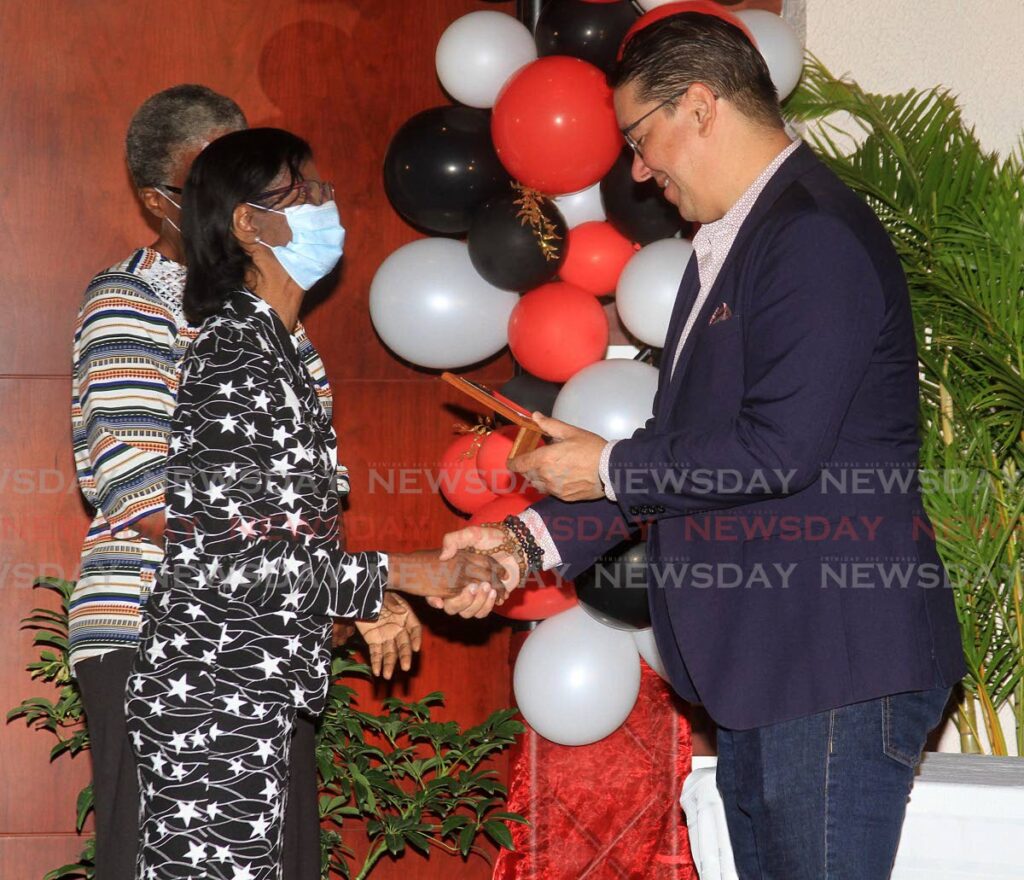First-time authors encouraged to continue writing

Communications Minister Symon De Nobriga said the 61 first-time authors celebrated by NALIS (the National Library and Information System Authority) during its 13th appreciation ceremony have added to the continuing national bibliography, and advanced Trinidad and Tobago’s growing national consciousness even further.
Speaking at the ceremony at the UTT’s Academy of the Performing Arts on Tuesday, De Nobriga noted that the 61 authors ranged in age from 25 to 75, and came from very diverse backgrounds and demographics.
He said 27 came from north Trinidad, 11 from east Trinidad, and seven each from central and south Trinidad, with four from Tobago, four from the US, and two from Canada. Their work, he said, encompassed all genres, including fiction, non-fiction, poetry, religious and educational material.
“Literature is a mirror reflecting back at us how the society works, and functions. In the modern world, the role of literature in society assumes added significance because of the impact it creates by shifting, refining and reshaping our thoughts and behaviour. Literature chronicles our history, and tells the stories not only of our current struggles but also of our evolved perspectives of the people, places and events that have also brought us to this particular place in time. In doing so it also reflects our evolution and growth as individuals and as a whole.
“I cannot tell you how in awe of you all I am, not just the talent, but the courage, to put your thoughts, to put your words down on paper, to create these worlds, to teach these lessons to your readers.”
He said literature possesses the capability to transport the reader’s mind into a completely different universe full of love, peace, sorrow, and conflict.
“I am firmly of the view that literature, in all its genres, is of paramount importance for the development of modern society. It is quite heartwarming for me to note that while the current tech-savvy world has thrown us at an extensive array of entertainment avenues, it still has failed to dislodge reading as the primary source of recreation.”
De Nobriga said children are reading less as their attention span was being taken up by the various forms of entertainment available to them on their electronic devices, and the challenge was how to get them to read more.
“The answer does not lie in depriving them of their devices, but rather in ensuring that their devices are equipped with apps that help them to appreciate reading more; and in us, as adults, reading more, and encouraging our children to read more. The answer lies in us telling our stories, and in us writing our stories so that generations after will benefit from their telling.”
He challenged NALIS to expand the appreciation ceremony not only to those who have ventured into printed work, but to those engaged in producing new work in other media.
NALIS executive director Paula Greene said the 61 authors would be added to the 488 TT authors who had been celebrated since the programme in commemoration of World Book and Copyright Day in 2010.
She said over the past two years, in-person ceremonies took place with small groups of authors, in accordance with the covid19 public health regulations, and she was delighted to be able once again to host an in-person event.
“The first-time authors’ appreciation programme is important for us at NALIS, given our mandate to preserve our national heritage information and promote literacy. We firmly believe that books and the written word are sources of empowerment and records of our nation’s history as seen through your eyes.”
She said as the programme has grown, there had been an increase in the number of people publishing in time to make the list of first-time authors in a given period. She said being a NALIS first-time author has opened doors for many of the previous cohort, with several authors being featured in the local and regional press, at the First Time Authors’ Exhibition, and on NALIS’s website.
“Through our corporate First Time Authors’ Appreciation Programme, held across our network of libraries, authors are offered the opportunity to conduct book readings, book signings, book talks and tours. We, therefore, encourage you to grasp these opportunities when they arise. Also, we encourage you all to keep on writing.”
Each participant was given a plaque inscribed with their name and the name of their book. A list of the authors and their works can be found at www.nalis.gov.tt


Comments
"First-time authors encouraged to continue writing"